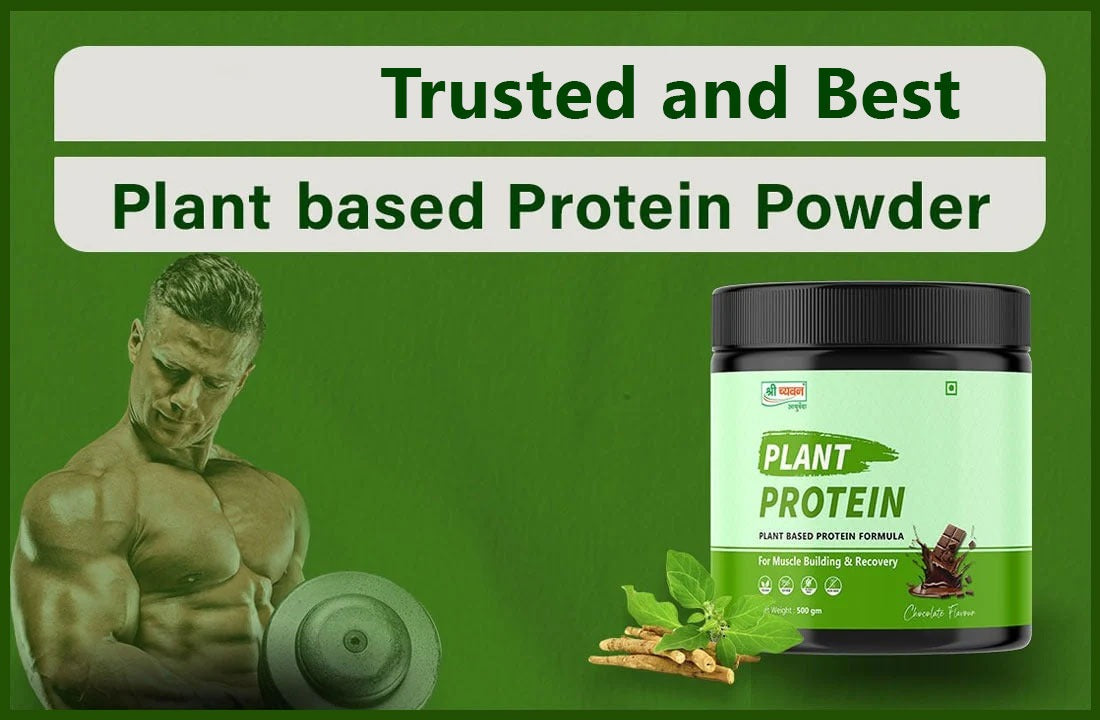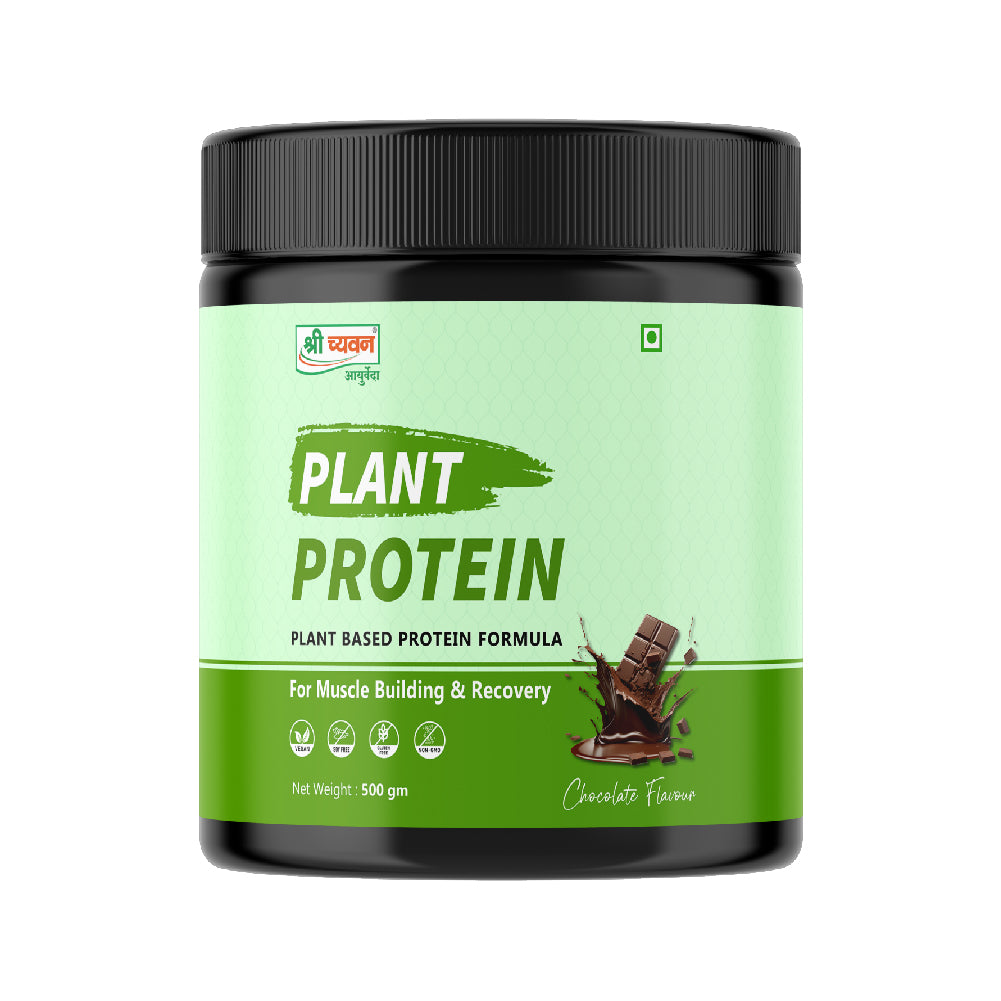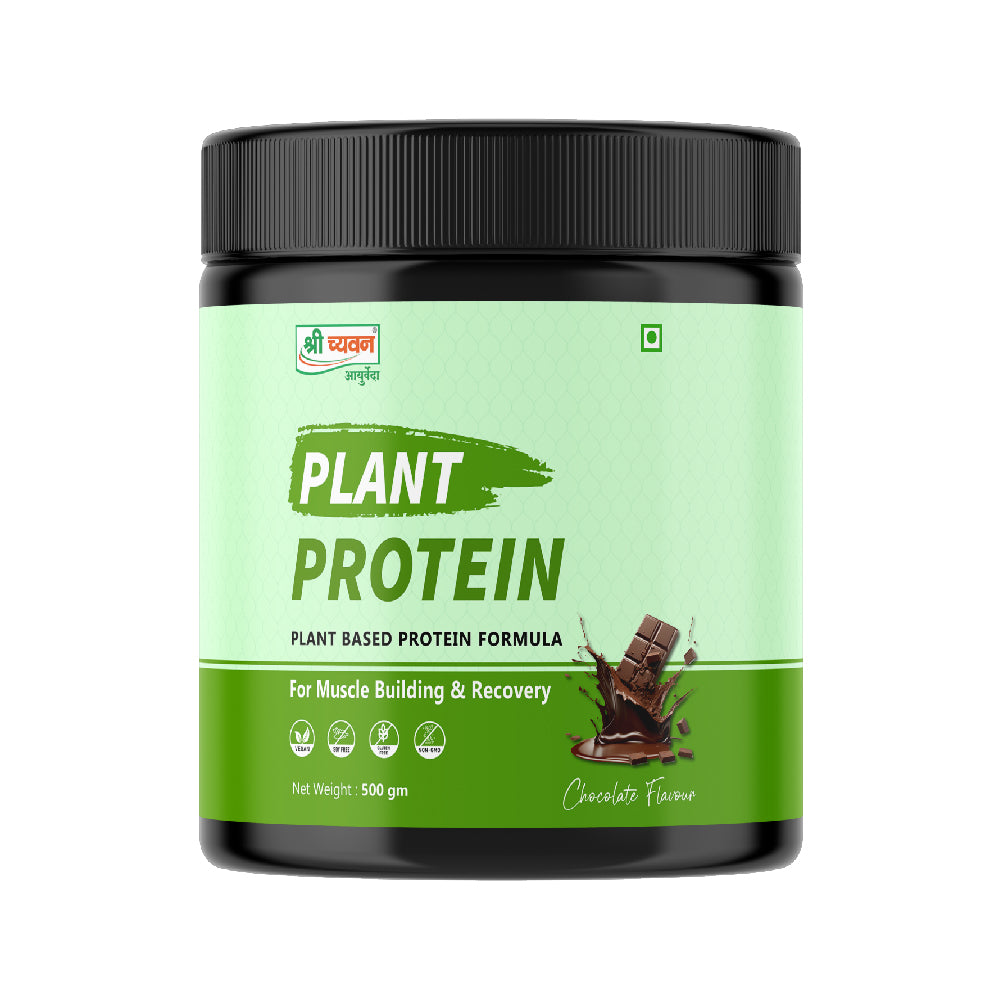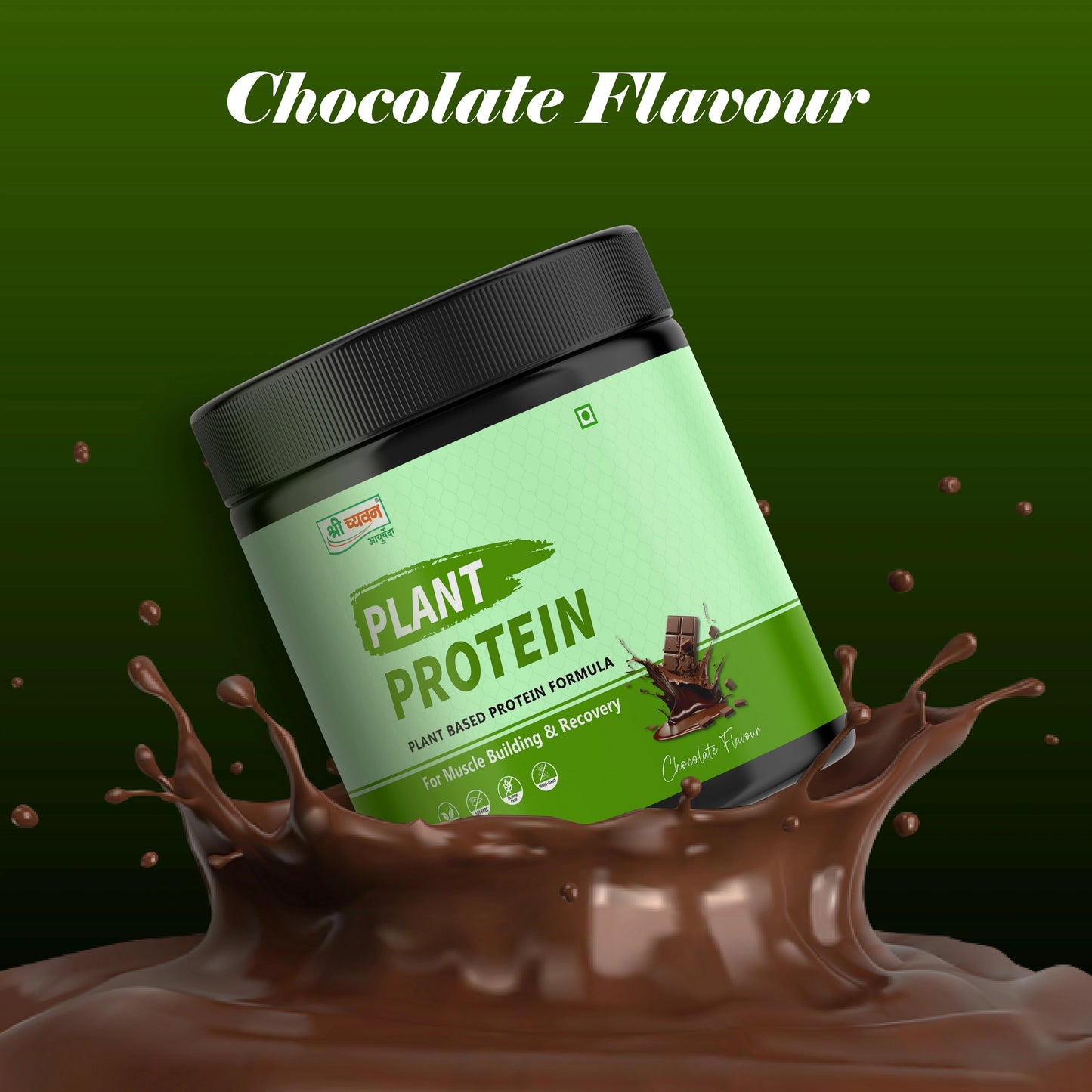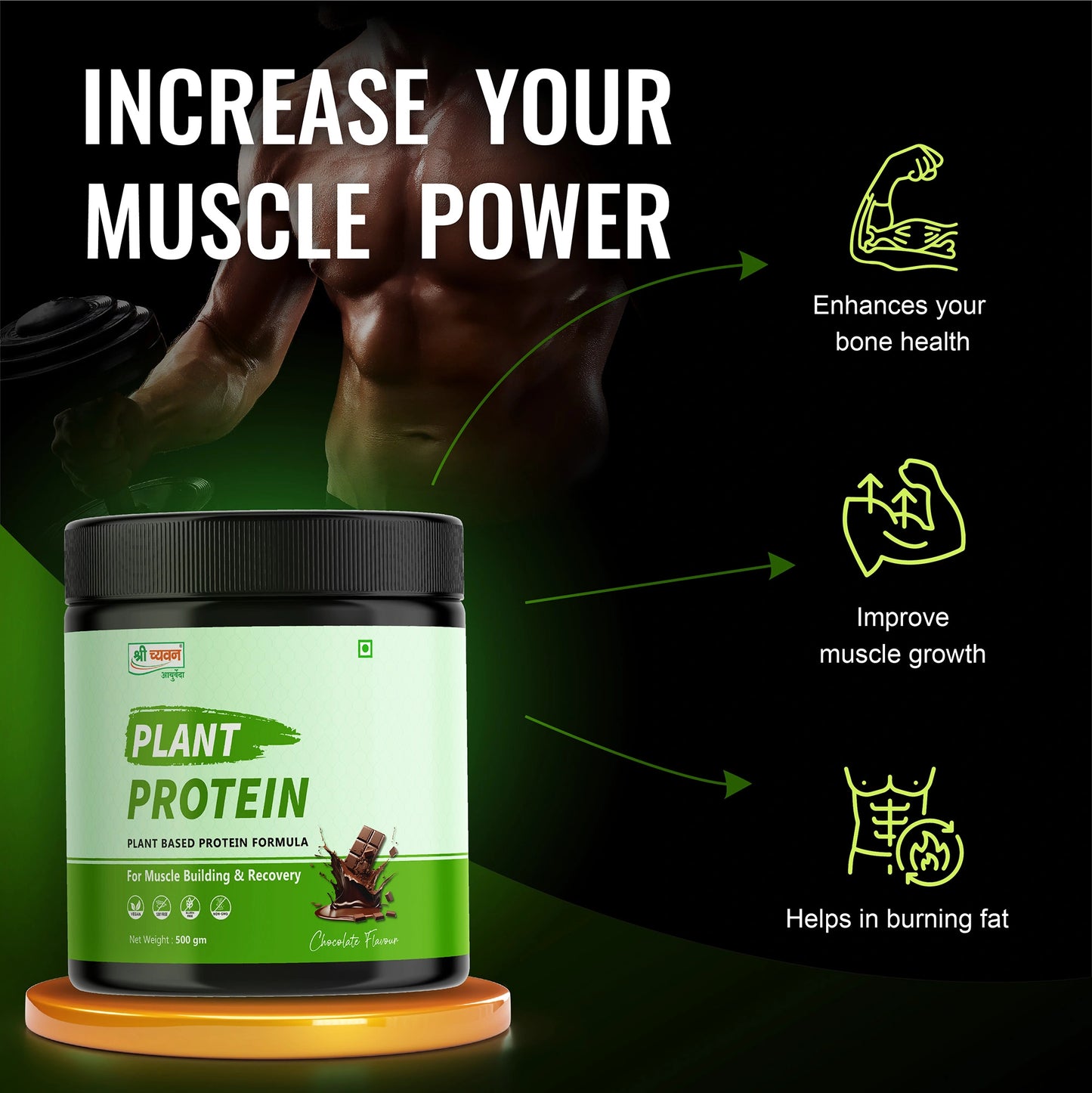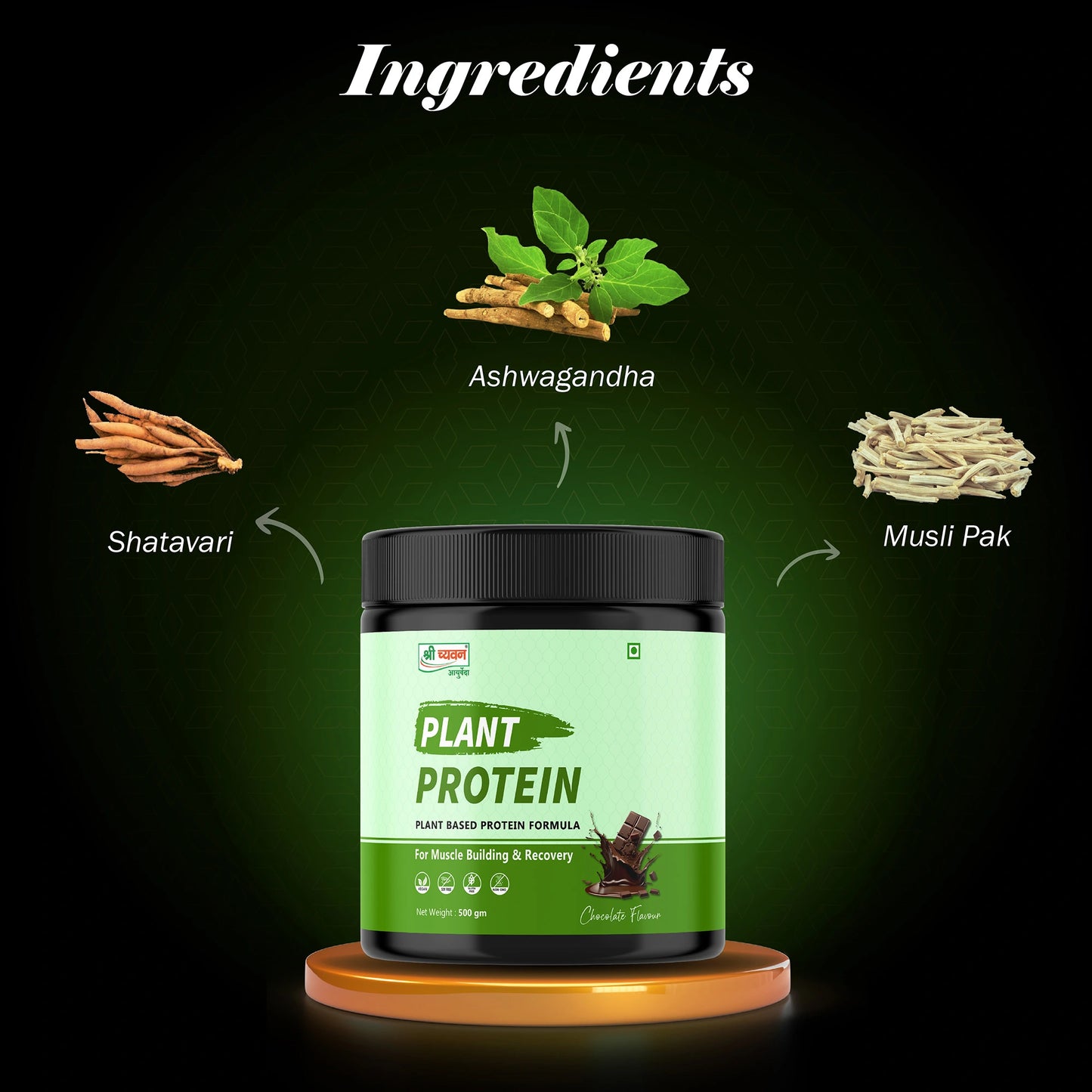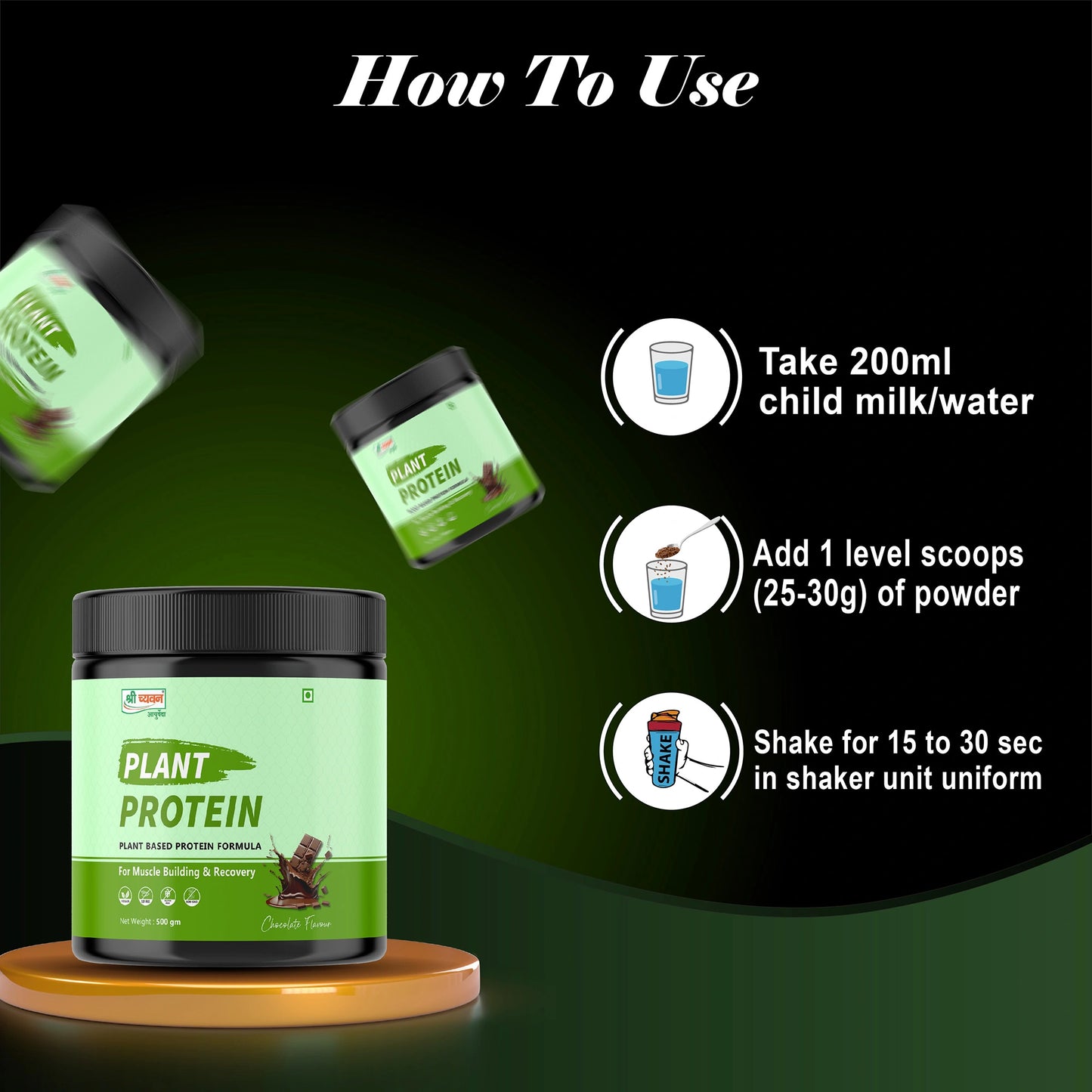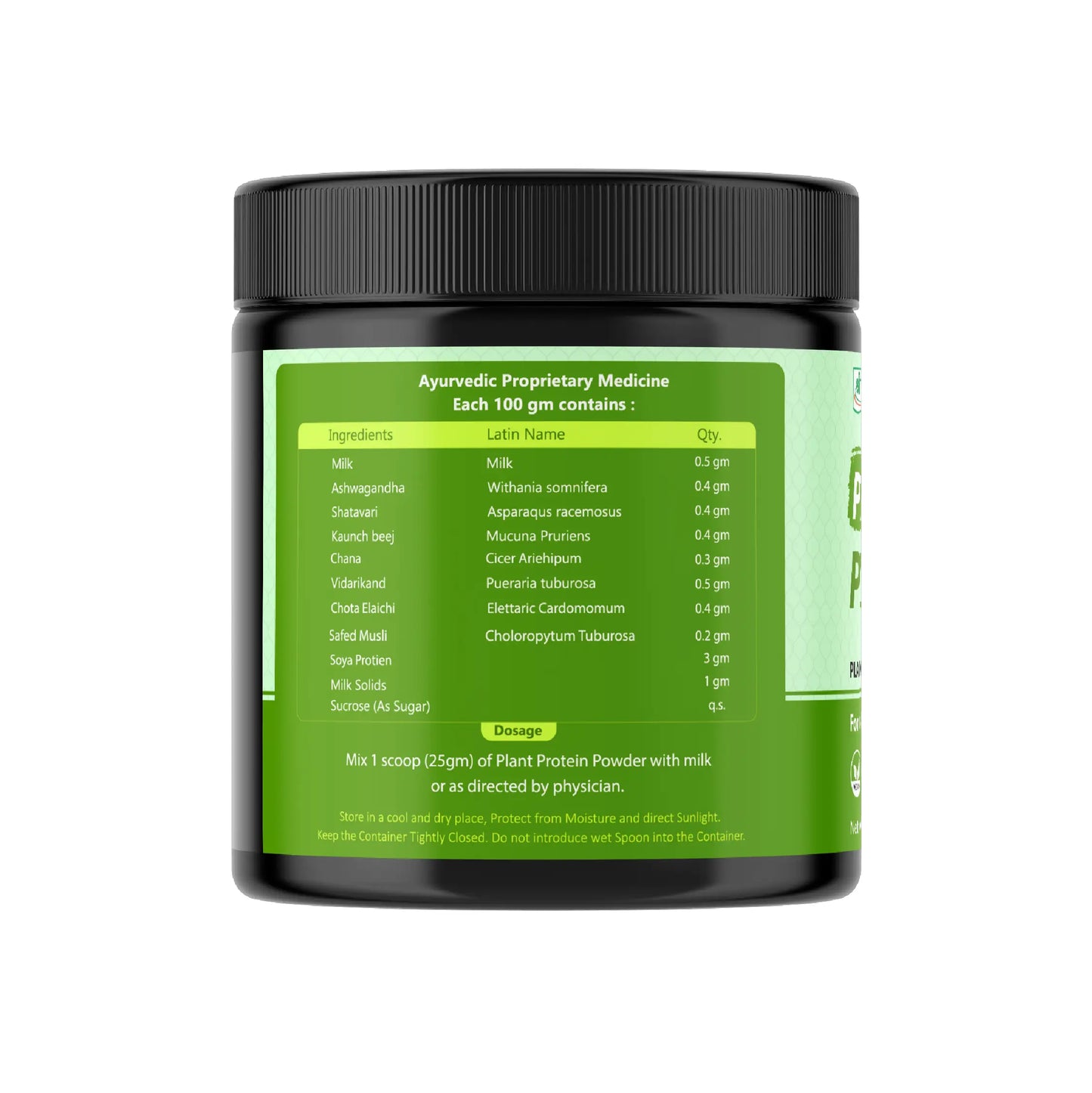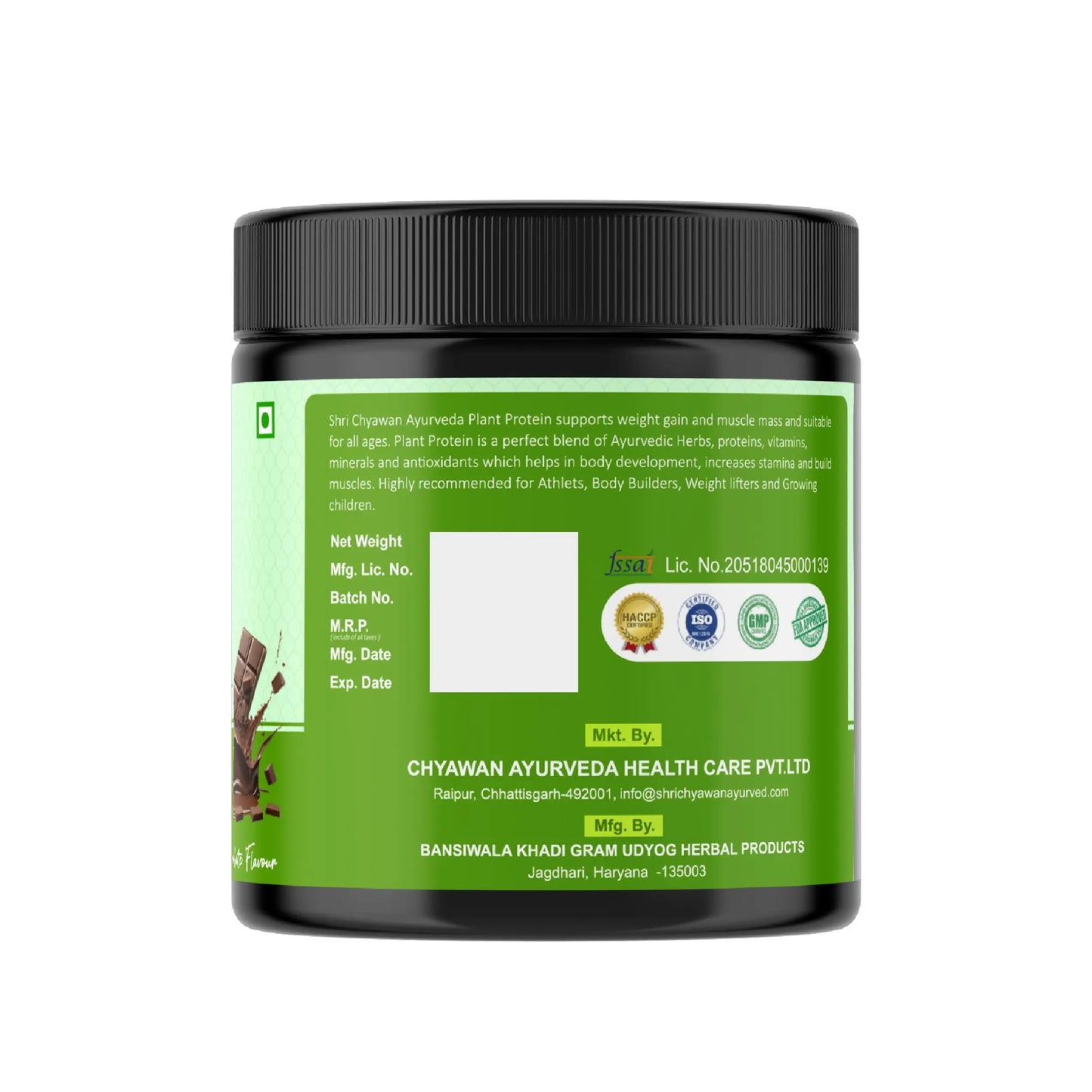Plant protein refers to the protein derived from plant-based sources such as legumes (e.g., beans and lentils), grains (e.g., quinoa and wheat), nuts, seeds, and vegetables. Unlike animal proteins, plant proteins are free from cholesterol and generally lower in saturated fats, making them a heart-healthy dietary choice. They provide essential amino acids necessary for bodily functions, making them a valuable component of vegetarian and vegan diets. Plant protein sources also offer various other nutrients, including fiber, vitamins, minerals, and antioxidants, contributing to overall health and promoting sustainable and environmentally friendly food choices.
How is Plant Protein better from regular Protein Powder?
Plant protein powder can be considered better than regular protein powder for several reasons:
-
Health Benefits: Plant protein powders are typically lower in saturated fats and cholesterol compared to protein powders derived from animal sources, making them a heart-healthy option. They also tend to be rich in fiber, vitamins, minerals, and antioxidants, which can have additional health benefits.
-
Digestibility: Some individuals may find plant protein powders easier to digest, as they are often free from common allergens like dairy and lactose. This makes them suitable for people with lactose intolerance or dairy allergies.
-
Environmental Impact: Plant protein powders generally have a lower environmental footprint compared to animal-based protein powders. Producing plant proteins often requires fewer resources, such as water and land, and generates fewer greenhouse gas emissions, contributing to sustainability.
-
Ethical Considerations: Plant-based protein powders align with ethical and humane considerations for those who choose to avoid products derived from animals due to concerns about animal welfare.
- Versatility: Plant protein powders come from a wide variety of sources like peas, rice, hemp, soy, and more, providing diverse options for those with specific dietary preferences or restrictions.
Health Benefits of consuming Plant-based Protein:
Consuming plant-based protein offers numerous health benefits:
-
Heart Health: Plant-based protein sources are typically low in saturated fat and cholesterol, which can help reduce the risk of heart disease.
-
Weight Management: Plant-based proteins are often lower in calories and fat than animal-based proteins, making them a suitable choice for weight management and weight loss.
-
Lower Risk of Chronic Diseases: A plant-based diet rich in protein can reduce the risk of chronic diseases such as type 2 diabetes, hypertension, and certain cancers.
-
Improved Digestion: Plant proteins are often easier to digest than some animal proteins, making them a good option for individuals with sensitive digestive systems.
-
Better Gut Health: Many plant-based proteins are also high in fiber, which promotes a healthy gut microbiome and can aid in digestion.
-
Reduced Inflammation: Plant-based diets are associated with lower levels of inflammation, which can help mitigate inflammatory conditions such as arthritis and inflammatory bowel diseases.
-
Bone Health: Some plant-based proteins, like tofu and tempeh, are rich in calcium and can contribute to overall bone health, especially when part of a well-balanced diet.
-
Lower Risk of Kidney Stones: Plant-based diets may reduce the risk of kidney stones due to their lower purine content compared to some animal-based proteins.
- Improved Skin Health: The antioxidants and nutrients found in plant-based proteins can contribute to healthier, more vibrant skin.
Environmental Sustainability: Choosing plant-based protein over animal-based protein can reduce your environmental footprint, as plant agriculture generally requires fewer resources and produces fewer greenhouse gas emissions.
Shri Chyawan Ayurveda’s Plant Protein Powder
Shri Chyawan Ayurveda's Plant Protein Powder promotes everyday fitness required by the body. It provides optimum quantity of protein required daily by your body to fulfil its daily protein requirement.
Our Plant Protein Powder is a perfect blend of ayurvedic herbs, proteins, vitamins, minerals and antioxidants which helps in overall body development. It is cholesterol-free and sugar-free which helps in easy digestion.
Ingredients: It consists of a blend of all natural herbs and ingredients along with Milk, Shatavari, Kaunch Beej, Chana, Ashwagandha, Choti Elaichi, Safed Musli and Vidarikand. It is pure and vegetarian.
Plant Protein Powder Benefits:
- It helps to improve muscle growth as it is rich in iron, vitamins and amino acids.
- It eases the digestion process and helps in muscle recovery.
- It also helps in improving your heart health.
- It is cholesterol-free and does not contain any artificial sweetener or added sugar.
- It helps in burning fat and aids in weight loss.
- It aids to build lean muscle, increase muscle gain and reduce muscle loss.
- It acts as a best supplement for fitness enthusiasts, athletes, weight lifters, young adults as a pre-workout or a post-workout drink.
- It enhances your bone health and eases the post-workout recovery process.
- Made out of all natural and herbal ingredients it is pure, vegetarian and has a delicious taste.
Ultimately, the choice between protein powder and plant protein powder depends on individual dietary preferences, dietary restrictions, and health goals. If you're following a plant-based diet or have dietary restrictions related to animal products, plant protein powder is a suitable option.
How to use: Mix 1 scoop (25gm) of Plant Protein Powder with milk or as directed by physician.
It's important to note that while plant-based protein powder offers many health benefits, it's crucial to maintain a balanced diet that includes a variety of protein sources and other essential nutrients to ensure overall health and wellbeing.
In conclusion, plant protein consumption has become an important part of the modern dietary landscape. Whether motivated by health, sustainability, ethics, or a combination of factors, incorporating more plant-based proteins into one's diet can offer numerous benefits. However, it's essential to approach this dietary shift with knowledge and consideration for individual nutritional needs to ensure a balanced and healthful eating pattern.

